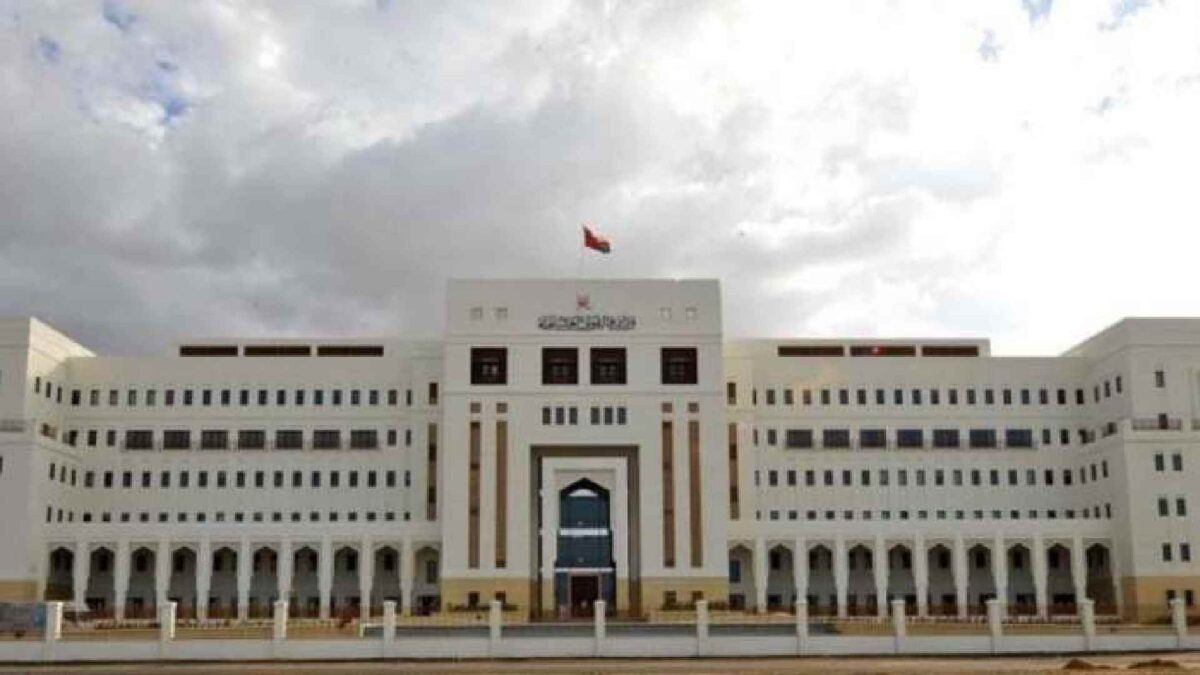In Oman, every employee and employer in the private sector must follow the labour law Oman. Before starting an employment relationship, it is important to learn about the provisions stated in the labour law to stay in compliance.
In this article, we are going to dive deep into the ministry of manpower Oman and its labour law Oman. Let us observe:
- Do you know what the Oman Ministry of Labour is?
- What is the labour law Oman?
- Everything about employment contracts as per labour law Oman
- See the working time, rest and holidays in Oman Labor Law
- Here we have the minimum wage in Oman
- Understanding the latest changes to the new Oman labour law
1. Do you know what the Oman Ministry of Labour is?
Oman is a country located on the south coast of the Arabian Peninsula. Since it is the second-largest country in the GCC and possesses natural resources, attracts thousands of companies and expatriate professionals looking for a better quality of life.
Therefore, the private sector has been developing constantly in the country. And since there are more private sector companies in the country, more expatriates search for a job.
In this regard, the Sultanate of Oman decided to regulate employment with the labor law Oman.
So, employers and employees need to familiarize themselves with both the ministry of labour and its labour law.
1.1 See the overview of the Ministry of Labour
Also known as the Ministry of Manpower, it was established by the Omani government by Royal Decree in 2001.
The Ministry of Labour has the following responsibilities:
- Draft laws that regulate the labour market.
- Issuance of regulations aimed to protect the national labour force.
- Follow up and monitor the compliance of Labour Law by the private sector companies.
- Issuing licenses to the private sector companies.
- Develop training curricula and encourage job training.
- Implement and follow up national programs to encourage the employment of the national workforce, like Omanisation (similar to the Emiratisation Rule in the UAE).
1.2 The vision and goals of the Ministry of Labour in Oman
Given that the Ministry of Labour has several responsibilities, its vision is to regulate the labour market and to ensure qualified national manpower participates in the growing economy of the country.
Regarding its goals, some of them are the following:
- Provide training and education that are suited to the requirements of the labour market.
- Establish regulations and systems that look to control the labour market.
- Follow up on the implementation of the labour law by employers.
- Study the private sector requirements in terms of foreign employees.
In general, the main purpose of the Ministry of Labour is to ensure the ratio of Omani citizens employed grows in the private sector. For this reason, it continuously integrates laws and regulations that have this objective.
2. What is the labour law Oman?
The labour law Oman regulates employment. It was issued in 2003, and since then, there have been several ministerial decisions to amend it.
As you may know, every country has its labour law. For example, there is the Qatar labour law and the UAE’s labour law.
But there are some crucial differences between them. Therefore, even if you are an employer in any of these Middle Eastern countries, several details change throughout them.
Thus, you need to learn all the different aspects of the labour law Oman to ensure you do not incur non-compliance. And also, to avoid any type of employment issues.
In this regard, the labour law governs everything about the following in Oman:
- Employment contracts.
- Working hours.
- Overtime payment.
- Benefits.
- Contract termination and more.
It is worth noting that the provisions in the labour law Oman are mandatory. Nonetheless, if the employer and employee agree on more generous benefits and entitlements than the provisions in the law, it is also valid.
3. Everything about employment contracts as per labour law Oman
One of the main aspects of labour law is the labour contract. An employment contract Oman is a contract of service, and according to the law, it must be written and under an agreement between the employee and employer.
It has to be written in Arabic, or if written in another language, should have a translation to Arabic attached.
The content of an employment contract should be the following:
- Employee’s name, date of birth, and qualification.
- Nationality.
- Position description.
- Employer’s name, address, and establishment.
- Basic salary.
- Allowances.
- Notice period.
- Terms of employment.
As per the types of contracts, there are limited and unlimited contracts, also known as fixed-term contracts and open-end contracts.
3.1 All about the employment of expatriates in Oman
If an employer wants to hire an expatriate in Oman, it is required to follow the next process:
- Get labour clearance issued by the Ministry of Labour. This is because there has to be authorisation for an expatriate to fill the open position.
- Obtain the employment visa for the employee issued by the Immigration Department.
- The employee must then travel to Oman to apply for a residence permit
3.2 Termination, notice period and probation period
The probation period in Oman cannot exceed three months. Once the employee completes probation successfully, he or she can continue working.
If by any chance any of the parties decides to terminate the contract during probation, it is required to comply with a seven-day notice period.
Nonetheless, contract termination can be done by any of the parties if the contract is of unlimited duration. The party that decides to terminate the contract must submit a written notice as follows:
- Monthly-based employees: 30 days of notice.
- Other workers: 15 days of notice.
It is important to comply with the notice period. If any of the parties decide to not comply with the notice period, then must be obliged to pay compensation to the other party.
And as for gratuity pay, employees are entitled to the following once they have completed a year of service:
- 1 to 3 years of service: half a month’s basic salary.
- After 3 years of service: a month’s basic salary for each subsequent year.
4. See the working time, rest and holidays in Oman Labor Law
Another aspect dealt with in labour law is remuneration and leaves.
4.1 Working hours and overtime in Oman
According to labour law Oman, the working hours cannot exceed 45 hours per week. Thus, employees can work 9 hours per day as a maximum.
And, during Ramadan, the working week and hours get reduced to 6 hours per day and 30 hours per week.
As per overtime, employees must agree to work overtime and receive compensation. The employee cannot exceed 12 hours of work per day including original and extra work hours.
Regarding compensation, the employee has to receive the basic salary plus 25% for overtime during the day and 50% for night work overtime.
Also, the employee may request time off if he or she prefers instead of the additional compensation.
4.2 All about the leaves in the Labour Law Oman
Some of the employment leaves in the law are the following:
- Annual leave: employees can take a paid annual leave of thirty days.
- Public holidays: in Oman, there are 6 public holidays.
- Sick leave: employees can take a maximum of 10 weeks of sick leave. First two weeks on full pay, the following two weeks at 75% pay, the following two weeks at 50% pay and the last three weeks at 25% pay.
- Emergency leave: 6 days of paid emergency leave.
- Maternity leave: female employees can take a 50-calendar day paid maternity leave.
- Bereavement leave: employees can take a three-day paid leave in the event of the death of a spouse or a relative.
- Marriage leave: employees can take a three-day paid leave
5. Here we have the minimum wage in Oman
In Oman, the minimum wage has been changing constantly throughout the years. Currently, the minimum wage for the private sector is 225 Omani Rial (OMR), plus 100 OMR of allowance, for a total of 325 OMR per month.
However, this minimum salary is for Omanis, since there is not a strict minimum wage for expatriates.
So, the employer has to agree with the expatriate employee on the basic salary and allowances to receive.
6. Understanding the latest changes to the new Oman labour law
The Oman labour law 2021 has changed and there have been several amendments. One of the most recent decisions of the Ministry of Labour has been intending to create more jobs for Omanis.
In this regard, the government issued a ban in July 2022 on non-Omanis stating that they cannot work in 207 job positions.
So, the recruitment of Omani nationals may seem to increase, and also the government has issued several programs to encourage private sector companies to employ local workforce.
if you want to learn more about Oman and how to succeed in this Middle Eastern country, you need to visit our blog. We have valuable tips and guides such as how to be confident in a job interview or how to manage stress in the workplace.










